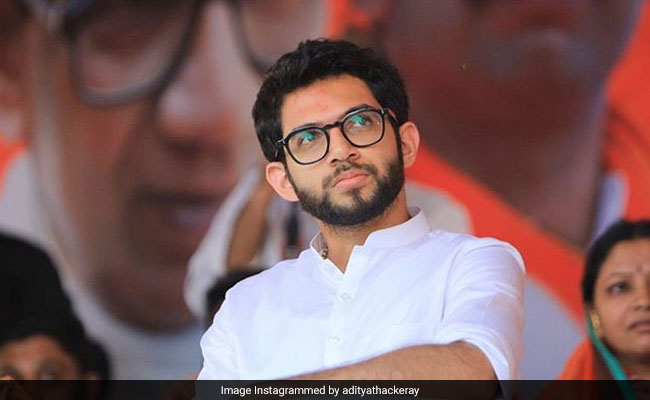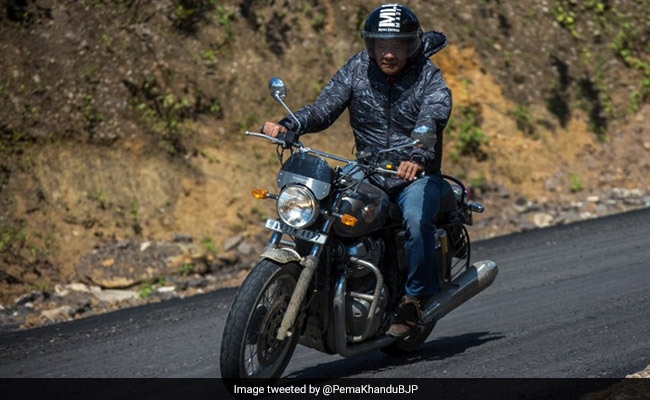
In the last 10 years, Indian politics has changed a lot, and the drivers of the change are political debutants. These leaders have infused fresh ideas into the country's political narrative. Over the years, some from this new crop of leaders have emerged as an alternative to well-established political players, changing electoral equations in their states for good. Some young leaders have become kingmakers; some have taken the mantle from old warhorses. Here is the list of the most prominent political debuts of the decade.
Arvind Kejriwal

Arvind Kejriwal's ascend to power is astonishing. An income tax officer-turned-RTI activist, Mr Kejriwal, who was the force behind the 2010 Lokpal movement, had been slammed by critics when he formed the Aam Aadmi Party (AAP) in 2012. Undeterred, Mr Kejriwal led his new outfit from the front and produced a stellar result in the Delhi Assembly election in 2013. With help from the Congress, Mr Kejriwal outmaneuvered the single-largest party - BJP- and formed a government, which lasted only 49 days.
In the run-up to the Delhi Assembly election, 2015, Mr Kejriwal famously apologised to the people of the capital city for pulling the plug on the AAP-Congress government. Armed with his down-to-earth image and the free electricity-water promise, his campaign resonated with the masses. His party won 67 out of 70 seats. He became the Chief Minister, one of the youngest in the country.
Jagan Mohan Reddy

Jagan Mohan Reddy became an MP in 2009. After the death of his father, Andhra Pradesh Chief Minister YS Rajashekhar Reddy the same year, he had a fallout with the Congress leadership over the chief ministerial post. In 2010 he quit the Congress, and in 2011, he formed the YSR Congress party. A year after floating the new political outfit, he was jailed for 16 months in a disproportionate assets case. In the 2014 Andhra assembly election, his party won 67 of 175 assembly seats in the state, in the first polls it had contested, replacing the Congress as the principal opposition.
In 2017, Mr Reddy embarked on a state-wide walkathon, covering 125 assembly segments. He stopped two years later, just before the assembly and general elections. His hard work paid off- his party swept both the polls. He became the Chief Minister of the state in May this year.
Uddhav Thackeray

Uddhav Thackeray, son of Shiv Sena founder Bal Thackeray, had joined politics in 2002. After his father's death in 2012, he took over the reins of the party. The Sena has performed well under his leadership over the years. By 2019, no Thackeray had ever taken up any position in government; but things were about to change in the family.
In the Maharashtra Assembly election in 2019, the Sena-BJP combine had comfortably breached the majority mark, but on the day of results, Mr Thackeray claimed that he was promised rotational chief ministership. After days of back-and-forth, he approached ideologically opposite NCP and Congress for support. While the modalities were being worked out, the BJP, in a surprise ceremony, had Devendra Fadnavis take oath as Chief Minister. In a coup of sorts, NCP leader Ajit Pawar was also sworn in as Mr Fadnavis's deputy. No other NCP MLA, however, followed Mr Pawar; Mr Fadnavis had to resign 80 hours later. Uddhav Thackeray then became the Maharashtra Chief Minister, the first from the powerful Thackeray clan.
Nirmala Sitharaman

Union Minister Nirmala Sitharaman's rise to prominence in the BJP was rapid. Having joined the party in 2006, she was appointed as the party's spokesperson in 2010, when the BJP was the principal opposition. Her big break came when Narendra Modi became the Prime Minister in 2014. She was inducted into PM Modi's cabinet as a Minister of State. In 2017, Ms Sitharaman became the second woman after Indira Gandhi to hold the post of full-time Defence Minister. In 2019, she was appointed as the Finance Minister of the country amid reports of a major economic slowdown. In the last few months, she has defended the government on the economic front and has introduced several reforms to revive the slowing economy. She is currently among the most influential women leaders of the country.
Priyanka Gandhi Vadra

Ever since Rahul Gandhi contested and won the Lok Sabha election in 2004, there was a lot of speculation over his younger sister - Priyanka Gandhi Vadra- joining politics. She, however, remained largely away from politics for over 15 years, barring her campaigns in family strongholds. Her big debut came earlier this year before the Lok Sabha election, after the Bahujan Samaj Party and the Samajwadi Party ditched the Congress. She was made in-charge of the party in eastern Uttar Pradesh, not just for the Lok Sabha election, but also for the 2022 UP Assembly election. The Congress didn't do well in the state in the national election. But Priyanka Gandhi, who some say resembles with grandmother Indira Gandhi, made her mark as a strong anti-BJP voice in the country. Over the months, she has launched scathing attacks on the BJP governments in UP and at the centre, on topics ranging from farm distress, economic slowdown to the Nation Register of Citizens. She has also hit the streets on several occasions. Recently, after police crackdown at the students of Jamia Millia Islamia, who were protesting against the Citizenship Amendment Act, she visited the site of the protest and showed her solidarity with the protesters.
Dushyant Chautala

In 2014, Dushyant Chautala, Indian National Lok Dal patriarch Om Prakash Chautala's grandson, became the youngest ever MP. Last year, however, after infighting in the family, Dushyant rebelled and launched a breakaway party- Jannayak Janata Party. The JJP's performance in the 2019 Lok Sabha election proved uninspiring. He himself lost his parliamentary seat. Barely months after the debacle, the party won 10 seats in the state assembly polls. With both the BJP and the Congress needing his support to form government, Dushyant chose to become the Deputy Chief Minister in the Manohar Lal Khattar government.
Tejashwi Yadav

After an unimpressive cricket career, Lalu Yadav's younger son Tejashwi Yadav's foray into politics was marked by a win in the 2015 Bihar Assembly election. He was sworn in as Nitish Kumar's deputy in the JDU-RJD government. However, in 2017, after father Lalu Yadav was convicted in corruption cases, and allegation of corruption emerged against other members of the family, Nitish Kumar ended the alliance and resigned as Chief Minister. Mr Kumar then took support from the BJP and formed the government.
Tejashwi Yadav became the Leader of Opposition in Bihar at the age of 28. He is known for his sharp attacks on Prime Minister Narendra Modi and his government. He has also slammed Mr Kumar over the law and order situation in the state on several occasions.
Aaditya Thackeray

Aaditya Thackeray, 29, is the elder son of Maharashtra Chief Minister and Shiv Sena chief Uddhav Thackeray. He is widely considered as Mr Thackeray's political heir. A published poet, he was appointed as the Sena's youth wing leader in 2010. In 2019, he contested the Maharashtra assembly election from Mumbai's Worli seat and won, becoming the first ever member of the Thackeray family to have contested an election. During the agitation against the cutting of trees in Mumbai's green belt for a Metro car shed, he had supported the protesters.
Tejasvi Surya

Tejasvi Surya's inclusion in the BJP's list of candidates for the Lok Sabha election had surprised poll pundits. He was chosen over Tejaswini Ananth Kumar, wife of late BJP stalwart Ananth Kumar. A political activist and youth BJP office-bearer, Mr Surya had never contested an election before. He defeated Congress's BK Hariprasad by a massive margin of over 3 lakh votes, becoming the youngest MP to represent BJP in parliament.
Pema Khandu

Pema Khandu has had an eventful political career. Having won the bypolls to his late father's constituency in 2011 on Congress ticket, he was inducted into state cabinet. In 2016, he became the Chief Minister of Arunachal Pradesh at the age of 37. Months after that he led a group of 43 Congress MLAs that joined People's Party of Arunachal (PPA), a BJP ally. In the same year he was suspended from the party after which he joined the BJP with several MPs. He later proved his majority in the house, becoming the second BJP Chief Minister in the state ever.
Track Latest News Live on NDTV.com and get news updates from India and around the world

